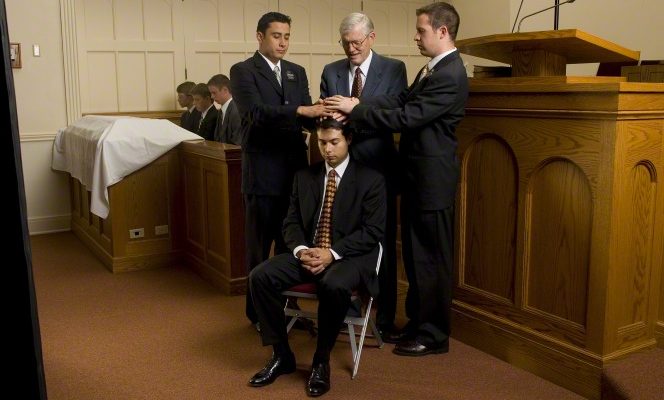
Making and keeping promises is a highly valued trait in The Church of Jesus Christ of Latter-day Saints. In fact, the first official act of every member of the Church (sometimes inadvertently called “Mormons”) when we are baptized is to make a covenant—a two-way promise with our Heavenly Father—to live as He has directed through the example of His Son. In return, God promises that His Spirit will be with us always.
One of the fundamental attributes of our Father in Heaven is that He always keeps His promises. The purpose of our lives is to try to become as much like Him as possible, so keeping our promises to Him and others is an ideal most of us strive for consistently.
As members of the Church of Jesus Christ progress and learn to apply the gospel with greater consistency, they will also make increasingly more important promises to their Father in Heaven. These covenants always provide blessings in return for the integrity in keeping them, which we believe will eventually result in the ultimate gift—eternal life with our families and God.
Both Spiritual and Psychological Blessings
Making and keeping our promises—not just to God, but to those around us—is about more than just adding to an ethereal reservoir of karma for the soul. Modern studies in social psychology show that upholding commitments boosts self-esteem, helps us cooperate with others, and generally leads to a more optimistic outlook.
“When we don’t keep a promise to someone, it communicates to that person that we don’t value him or her,” said journalist and wellness expert Michelle Gielan in a 2010 article published in Psychology Today. “We have chosen to put something else ahead of our commitment. Even when we break small promises, others learn that they cannot count on us. Tiny fissures develop in our relationships marked by broken promises.
“We are not only communicating all of this to others,” Gielan concluded, “we are telling ourselves that we don’t value our own word.”
What we believe the Gospel of Jesus Christ gets right is that the strength of our relationships, both mortal and otherwise, can be measured by the strength of the promises extended within them.
When we value our relationships with family, we don’t lie or cheat. When we value our relationship to God, we keep our covenants.
Ordinances—Symbols of our Promises
Symbols were an important part of human psychology long before the term “Christian” was coined. Using familiar images or ideas to represent more abstract concepts solidifies them in a general sense and helps diffuse confusion. It makes sense, then, that our most important promises—to God and to our loved ones—would be made official through outward symbols of commitment.
In The Church of Jesus Christ, these symbolic rituals are called ordinances.
We believe that these outward symbols of our commitment are another thing the Gospel gets right—particularly in a time when many outward acts of social integrity, such as marriage and vows of political office, seem to have seen their symbols degenerate in the minds of many.
In a day where the desire to hold ourselves accountable for the promises we make seems to be waning, it can be comforting to know that some symbols cannot be tarnished.
That is another blessing Latter-day Saints believe we get from our covenants—a strong foundation for our personal accountability. By learning to keep our promises now, we can set a foundation of integrity for future generations.
That, perhaps above all, is why we believe so strongly that the world can benefit from the Gospel of Jesus Christ.







